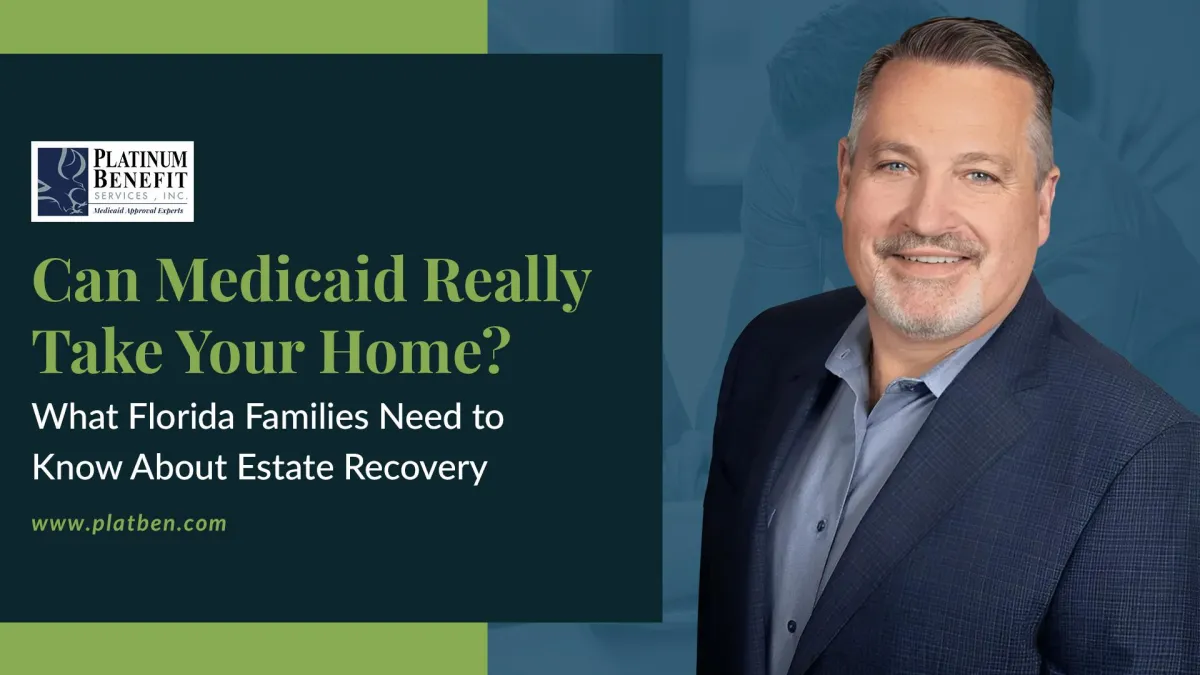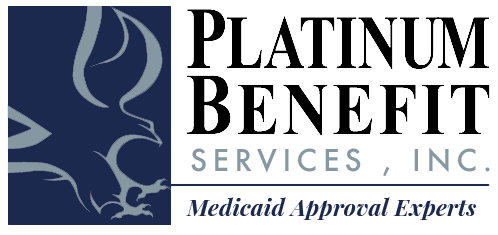
Can Medicaid Take Your Home in Florida? Estate Recovery Explained
Can Medicaid take your home after you pass away?
Antony Turbeville explains that in Florida, Medicaid cannot take a person’s primary residence after they pass away. While many states allow Medicaid to place a lien on a home to recover costs spent on long-term care, Florida law treats the homestead property differently. Even if a Florida home goes through probate, Medicaid cannot collect against it.
This common misconception often arises because many people move to Florida from other states where estate recovery is aggressive. In northern states, homes are often subject to liens or recovery after death, which can drain a family’s equity. In Florida, however, the primary residence is protected, making it exempt from Medicaid recovery.
Antony clarifies that while he is not an attorney and does not provide legal advice, his experience with over 17,000 Medicaid cases in Florida shows that no homestead property has ever been taken through estate recovery in the state. Families should still consult an attorney for individualized legal guidance, but they can rest assured that Florida’s rules safeguard the family home.
How does Florida treat a primary residence during Medicaid eligibility?
Florida Medicaid rules treat a primary residence as an exempt asset, even for a single applicant, provided certain criteria are met. First, the home must have been the applicant’s primary residence before leaving for a healthcare-related reason. Even if the person later moved in with a family member due to health needs, the home still qualifies as their primary residence.
Additionally, applicants must sign an “Intent to Return” statement. In the past, this was an informal verbal declaration, but now Florida requires a simple, one-page form. By signing this document, the applicant affirms that they would return to the home if their health allowed, which preserves its protected status.
It’s important to note that Medicaid does not allow applicants to keep income specifically to maintain the home. If there is a mortgage, payments can be made, but other property-related expenses like taxes, insurance, and maintenance require separate planning. Many families ultimately decide to sell the home because of the burden of upkeep, but there are strategies to protect the proceeds from the sale as well.
What is Medicaid estate recovery?
Medicaid estate recovery is the process through which the state attempts to recoup funds spent on a person’s long-term care by making a claim against their probate estate. Probate is the legal process of distributing a deceased person’s assets through the court system.
However, in Florida, Medicaid can only recover from assets that go through probate, and even then, homestead property remains exempt. Many people mistakenly believe that having a will avoids probate, but a will actually guarantees that probate will occur unless assets are otherwise designated to bypass it.
In Florida, assets left through beneficiary designations, joint tenancy with rights of survivorship, or transfer-on-death (TOD) or payable-on-death (POD) arrangements avoid probate and therefore avoid Medicaid recovery. In other states, the definition of probate may be broader, allowing recovery from non-probate assets, but Florida maintains a narrow approach.
What protections prevent a home from being subject to recovery?
Designating the property as a primary residence and signing an intent to return statement ensures the home remains exempt from Medicaid recovery in Florida. Even if the home goes through probate, it cannot be collected against as it is a protected asset under Florida law.
What if a spouse or dependent still lives in the home?
Florida law protects the home regardless of whether a spouse or dependent remains in the property. In other states, having a surviving spouse or dependent in the home can impact whether Medicaid places a lien or seeks recovery, but Florida maintains protection for the primary residence even for single applicants.
Can a home be transferred to children or heirs without triggering penalties?
There are limited scenarios where a home can be transferred without causing a Medicaid penalty. One example is the “caretaker child exception,” which applies if a child lived with the Medicaid applicant for at least two years before the parent’s need for long-term care, delaying the parent’s Medicaid application. In this case, the home can be transferred to that child without penalty.
This exception applies only to legal children—biological or adopted—not stepchildren. Additionally, a home can be transferred to a disabled child, whether or not they lived there, as well as to a sibling who has lived in the home for at least one year and can demonstrate an ownership interest, such as paying for home improvements, property taxes, or significant repairs.
What planning tools help protect a home?
In Florida, there’s typically no need for complex planning to shield a homestead from Medicaid recovery, but there are tools that simplify the transfer process after death. One commonly used tool is a Lady Bird deed, also known as an enhanced life estate deed.
This type of deed acts like a beneficiary designation for the property. Upon the owner’s death, the deed allows the property to transfer directly to heirs without going through probate. While Medicaid cannot claim a homestead property even in probate, avoiding probate altogether saves time, cost, and stress for the family.
Attorneys may also recommend other estate planning tools, such as revocable living trusts, but the Lady Bird deed remains one of the simplest and most effective ways to pass property without probate.
What about home equity limits and Medicaid eligibility?
While Florida protects the home from recovery, Medicaid eligibility does have an equity cap. In 2025, the limit is $713,000 in home equity. If the equity exceeds this threshold, the applicant must restructure assets to meet eligibility requirements.
For example, if someone owns a $1 million home free and clear, they are $300,000 over the equity limit. To resolve this, part of the home can be transferred to a child in exchange for a properly structured promissory note, which does not count as a countable asset for Medicaid eligibility. By reducing the home’s equity below the threshold, the applicant can still qualify for Medicaid while preserving the property.
What’s the best advice for families worried about Medicaid taking their home?
Antony reassures Florida families that they should not fear losing their home to Medicaid recovery. While excess equity may need to be addressed for eligibility purposes, the home itself is protected from recovery after death.
He advises families to work with qualified professionals to ensure the right paperwork is in place, including an intent to return statement and, when appropriate, a Lady Bird deed. These steps help families avoid unnecessary probate costs and streamline the process of passing property to loved ones.
Ultimately, Florida’s laws are more favorable than many other states, giving families more peace of mind when planning for long-term care.


